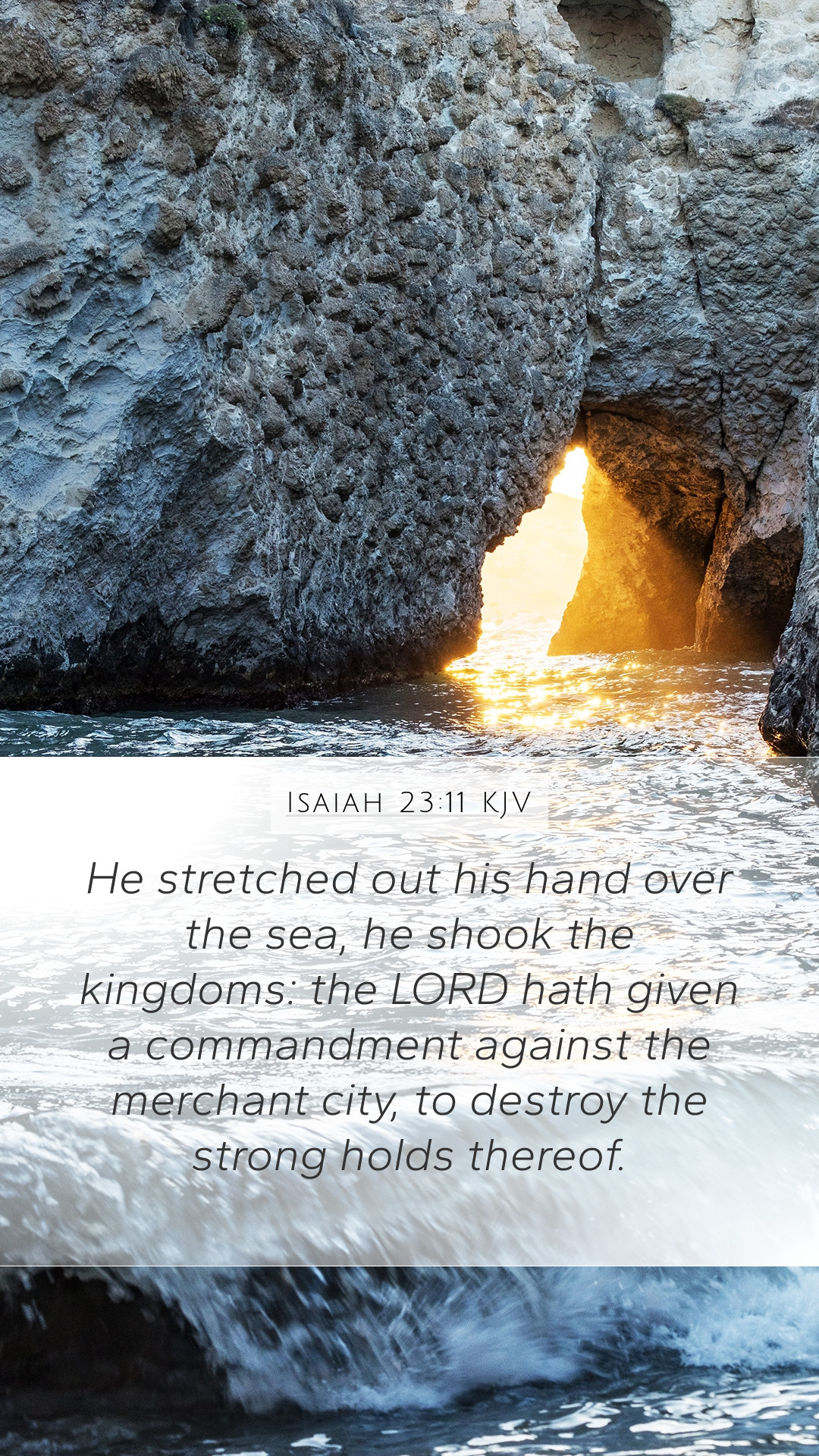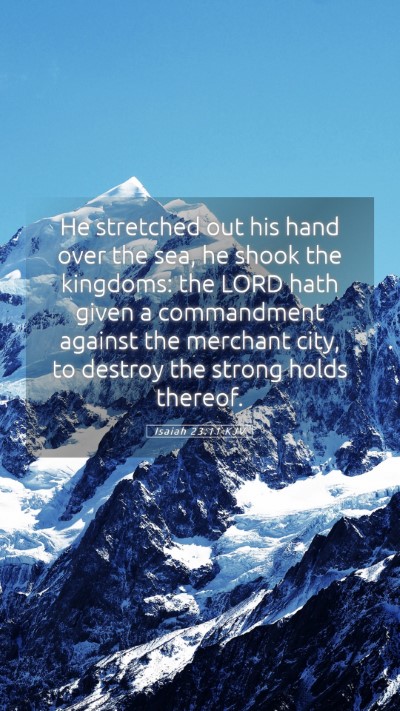Bible Verse Meaning: Isaiah 23:11
Isaiah 23:11 states: "He stretched out his hand over the sea; he shook the kingdoms: the Lord hath given a commandment against the merchant city, to destroy the strong holds thereof." This verse reflects the prophetic judgment against Tyre, a prominent trading city known for its wealth and commerce.
Understanding Isaiah 23:11
This passage is part of a larger prophecy where the prophet Isaiah conveys God's judgment against Tyre. Drawing insights from public domain commentaries such as those by Matthew Henry, Albert Barnes, and Adam Clarke, we can unpack layers of meaning associated with this verse.
Divine Sovereignty
Matthew Henry emphasizes that this verse showcases God's supreme authority over nations and their leaders. The 'stretched out hand' symbolizes God's active involvement in human affairs, particularly in the realm of judgment. This illustrates His capacity to influence even the mightiest kingdoms through His command.
Judgment on Commerce
Albert Barnes provides commentary on the reference to the 'merchant city'. He notes that Tyre, renowned for its trade and riches, faced divine judgment for its pride and sinful practices. The 'strong holds' represent the defenses that Tyre relied upon, highlighting the futility of human strength against God's will.
The Role of Prophecy
Adam Clarke highlights the nature of prophetic utterance, where Isaiah serves as a mouthpiece for God's impending intervention. The commandment issued against Tyre reflects God’s intention to dismantle the corrupt systems that underpin its economy and culture, thus serving as a warning to other nations prone to similar arrogance.
Contextual Analysis
To fully grasp Isaiah 23:11, one must consider the historical backdrop of Tyre during Isaiah’s time. The city was a significant maritime power, engaging in extensive trade with nations surrounding the Mediterranean. However, its commercial success was marred by moral decline and idolatry.
Related Cross References
- Ezekiel 26:7-14 - Discusses the destruction of Tyre by Nebuchadnezzar.
- Isaiah 14:24-27 - The certainty of God's purposes and His judgment against nations.
- Zechariah 9:3-4 - Prophecy regarding Tyre's future and downfall.
Theological Implications
The prophecy against Tyre is not merely historical; it carries significant theological implications for understanding God's righteousness and justice. The verse teaches about God’s control over the world and serves as a reminder of the dangers of complacency and pride in human achievements.
Application to Modern Life
In today’s context, while we may not face the same circumstances as Tyre, the underlying principle remains applicable. The pursuit of wealth and status can lead to moral compromise and distance from God. Isaiah 23:11 encourages believers to seek God's favor and remain humble, recognizing that our successes are ultimately under His sovereignty.
Conclusion
In summary, Isaiah 23:11 serves as a multifaceted verse rich in meaning and practical application. Through a mix of historical reflection and divine warning, it encapsulates the essence of God's judgment on human pride, particularly in economic domains. For those engaged in Bible study groups or seeking online Bible study resources, this passage highlights the necessity of understanding scripture within its context to draw insights that are relevant to modern Christian life.


